 Noorderlaan Opel plant in the port of Antwerp
Noorderlaan Opel plant in the port of AntwerpTuesday in Antwerp: A crisis meeting is taking place of Opel’s European works council to discuss the latest plans by the group’s parent company General Motors concerning Europe. Only a few days earlier, Opel’s managing director, Nick Reilly, announced the destruction of at least 8,300 jobs in Europe. The Belgian Opel plant, which presently employs nearly 2,600 workers building the Astra, is to be closed this summer.
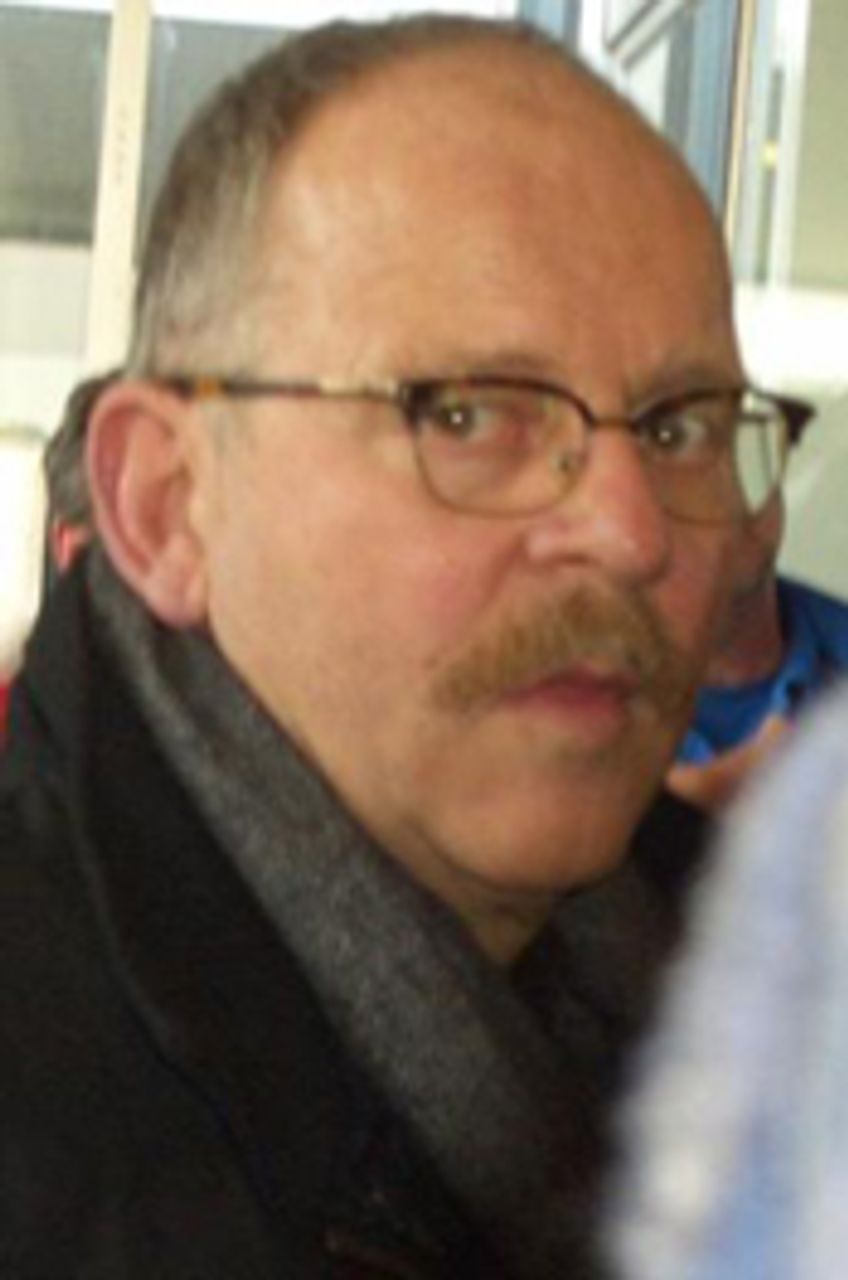 Klaus Franz, chair of Opel-
Klaus Franz, chair of Opel-Vauxhall Works Council
Works council leader Klaus Franz from Rüsselsheim has called a “protest event as an expression of European solidarity” for today. In reality, the meeting in Antwerp, attended by leading works council representatives from Belgium, Germany, Spain, Britain, Poland, Hungary and Austria, serves one essential purpose: to prevent any potential industrial action against the closure of the Opel plant in Antwerp, and to nip in the bud any possible solidarity of Opel workers throughout Europe.
“To put it bluntly: we do not want a strike,” Klaus Franz stated at the press conference. “We will not be provoked into fighting actions, no matter from which side.” There are no concrete action plans, Franz confirmed. His demand: “We want to talk to the management!” His goal is to intensify the collaboration with the company management in order to enforce the job cuts as smoothly as possible. Franz complains merely that the works council at Opel-Vauxhall had not been sufficiently consulted about the current dismissals plan.
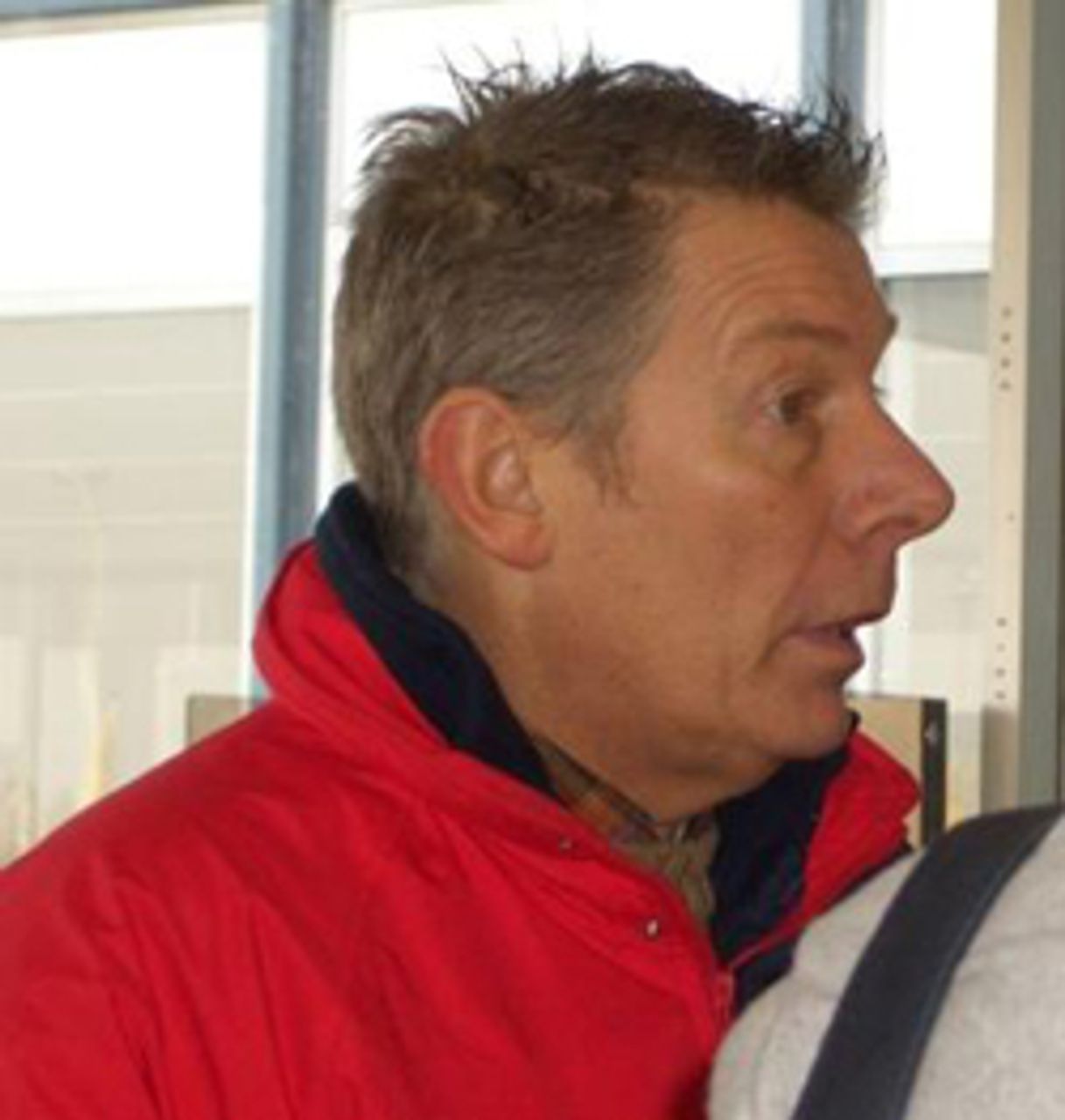 Rudi Kennes, Opel's works council leader
Rudi Kennes, Opel's works council leader in Antwerp
In a press statement, the works council demand that a small off-road vehicle (SUV) be built in Antwerp, as previously agreed, and not, as currently planned by GM, in South Korea. In 2007, GM had agreed in a contract that the plant in Antwerp would continue to stay in operation. The works council boast that the Belgian workers have forgone a total of €20 million a year for two years (!) in order to keep their plant open.
The only concrete measure of the day is that Klaus Franz and Rudi Kennes, works council chief in Antwerp, have invited the representatives of General Motors to an extraordinary meeting on Monday to decide on a new master plan for Opel in Europe. All the previous “master plans” agreed with the works council offered far-reaching concessions, including lowering wages and worsening working conditions. The result of these concessions was always the same―the wage cuts were followed by job losses.
The main concern of the works council representatives and trade union officials is that they might lose their status as highly paid junior partners of management.
Last year, the German works councils and IG Metall union planned massive attacks in the context of a possible takeover by the Canadian supplier Magna. They reckoned with both a plant closure in Antwerp and up to 10,500 job cuts. The difference was that the Magna deal included an “employee equity fund,” consisting of the holiday pay and Christmas bonuses of the workers. The works council and IG Metall, which were to control the fund, would thus become managers of 10 percent of the company’s working capital.
However, Nick Reilly, the GM-appointed Opel managing director for Europe, presented the works council with a fait accompli. He did “not consult” us―as Klaus Franz complains―but announced the closure of Antwerp. At the same time, Reilly is demanding an annual wage cut of €265 million, or other plants will be closed.
Tuesday’s “protest action” did not include a work stoppage at Opel, even for one day, either in Antwerp or in any other plant. The “solidarity delegations from all Opel plants” that had been announced proved to be two busses, mainly full of union officials from Hesse in Germany, and including a small group of handpicked “Opelaner” from Rüsselsheim.
Neither in Rüsselsheim, nor in Bochum, Eisenach, Luton or Gliwice, did the union make known the plan for the “protest action.” Such “solidarity” can only frustrate and discourage the workers in Antwerp.
In Antwerp, workers from the morning shift gather together in the cafeteria shortly before noon, and shortly after 2 o’clock for the late shift, where Klaus Franz and Rudi Kennes, the Belgian works council leader, speak to them for a few minutes. Then the assembly lines started running again.
During the shift change, representatives of the World Socialist Web Site spoke to workers in front of the factory to ask them their opinions and to distribute a statement by the Socialist Equality Party calling for the building of independent factory committees. (See “A socialist program to defend jobs at Opel”)
“Three quarters of all my colleagues assume that the plant will close, “says a 47-year-old labourer who has worked at the factory for 22 years. “In 1989, we were still a workforce of 12,000, now we are not even 3,000. We have to work harder and harder with fewer and fewer people, and then we are supposed to forgo part of our wages. Our example shows that wage reductions do not save jobs.”
Anne, Jurgen and Robby also assume that the factory closure is a done deal. Many colleagues in the factory are angry and frustrated, they say. "They have been relying on attrition for a long time, for two or three years it's been going back and forth," says Anne. The three say that many workers are losing confidence in the union. Jurgen comments, “You have to do things yourself, you are right about that. We are only 2,600 here, but workers in other plants have the same problems as we do.”
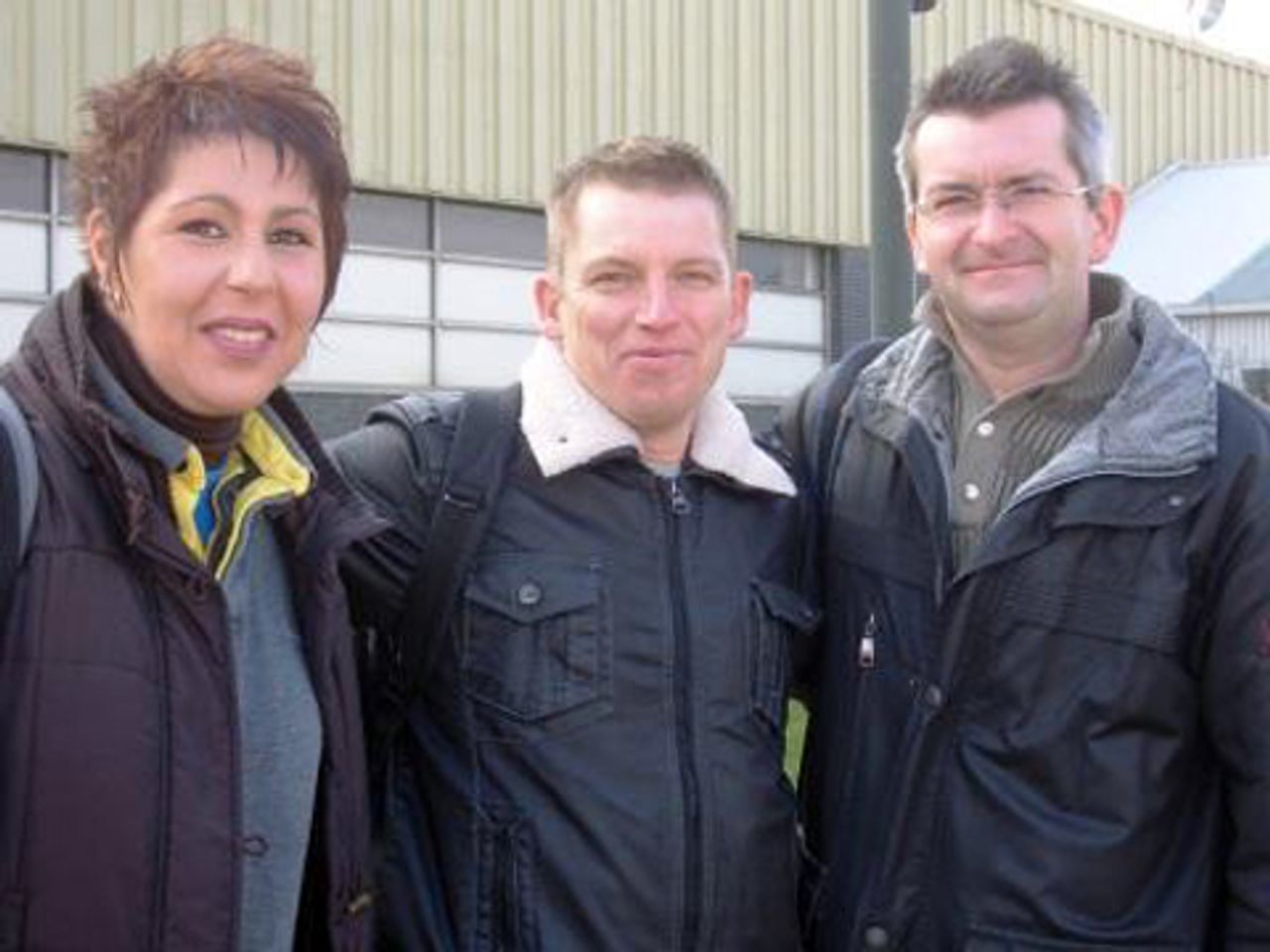 Anne, Jurgen and Robby
Anne, Jurgen and RobbyThe closure of Opel will have a devastating impact on industry in the Antwerp region. In Flanders, official unemployment is now nearly 17 percent. Three jobs in the supply industry depend on each Opel job.
Since it has been known that the plant is to be closed, workers arrive daily from the surrounding factories at Noorderlaan in the port of Antwerp, where they hold a vigil at the east gate of the Opel plant. Here, colleagues meet after work with workers from the subcontractors, suppliers and other factories. Workers here tell us what a closure of the Opel Antwerp plant would mean for them.
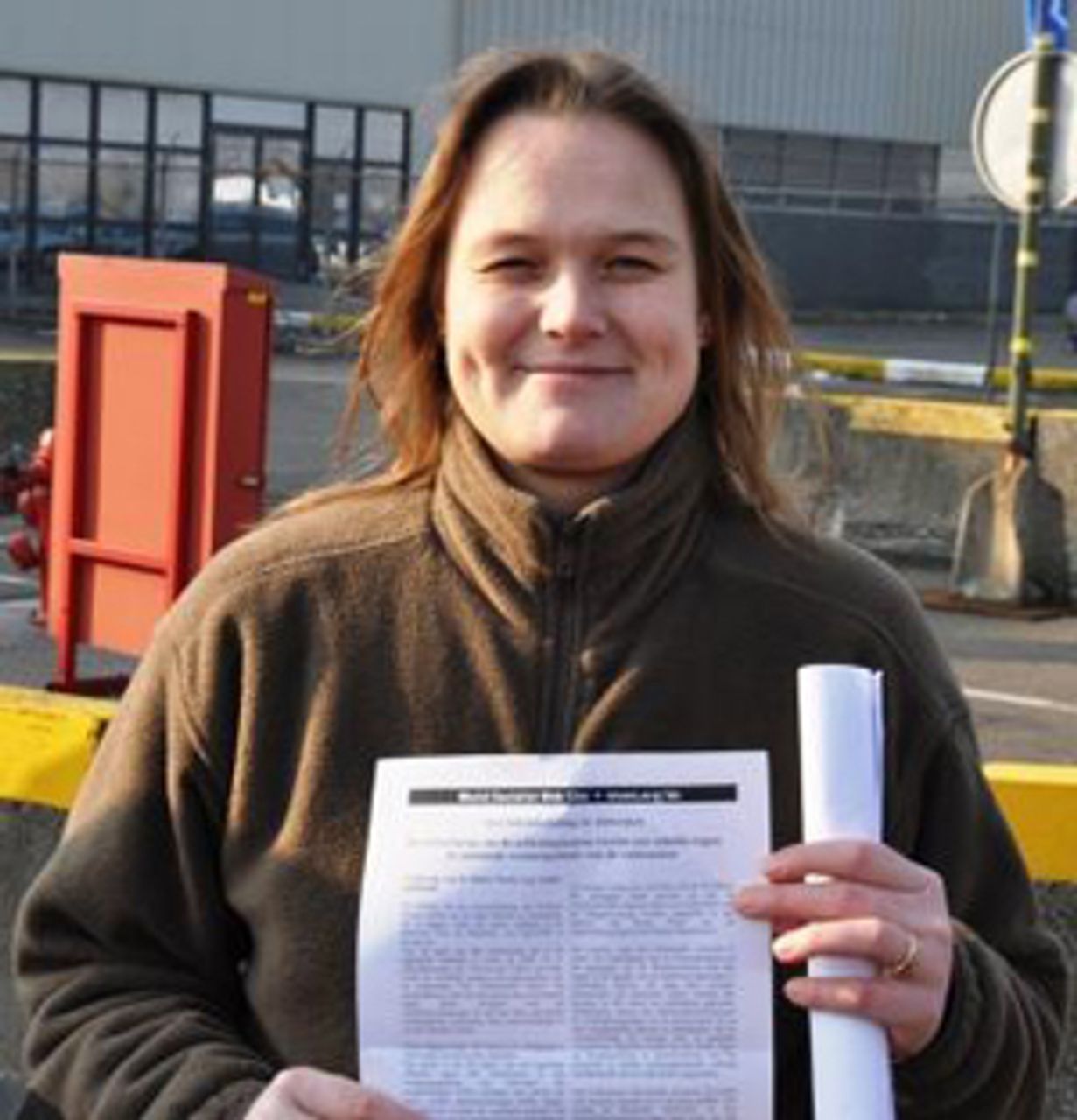 Sarah
SarahSarah has been working for 10 years for a company that takes care of the payroll for Opel; her husband is a shift worker at Opel. If Opel closes, both will lose their jobs. "It is clear that we must fight,” says Sarah, who is soon expecting a child. “But what can we do?” She says it is absolutely right for the workers to unite and fight together across borders: “It's about our future."
 Ibrahim
IbrahimAdama Ibrahim and his colleague work for a cleaning crew at the Opel factory. “I've been 13 years at Opel,” he says, “but in recent times it’s been distinctly unpleasant. We don’t know from one day to the next whether we will still have work." Ibrahim, who has been a cleaner at the factory for the past six years, adds, “At the moment, the situation is terrible, because nobody can tell you what will happen next! My colleagues are extremely concerned about what will become of their families when the plant closes.”
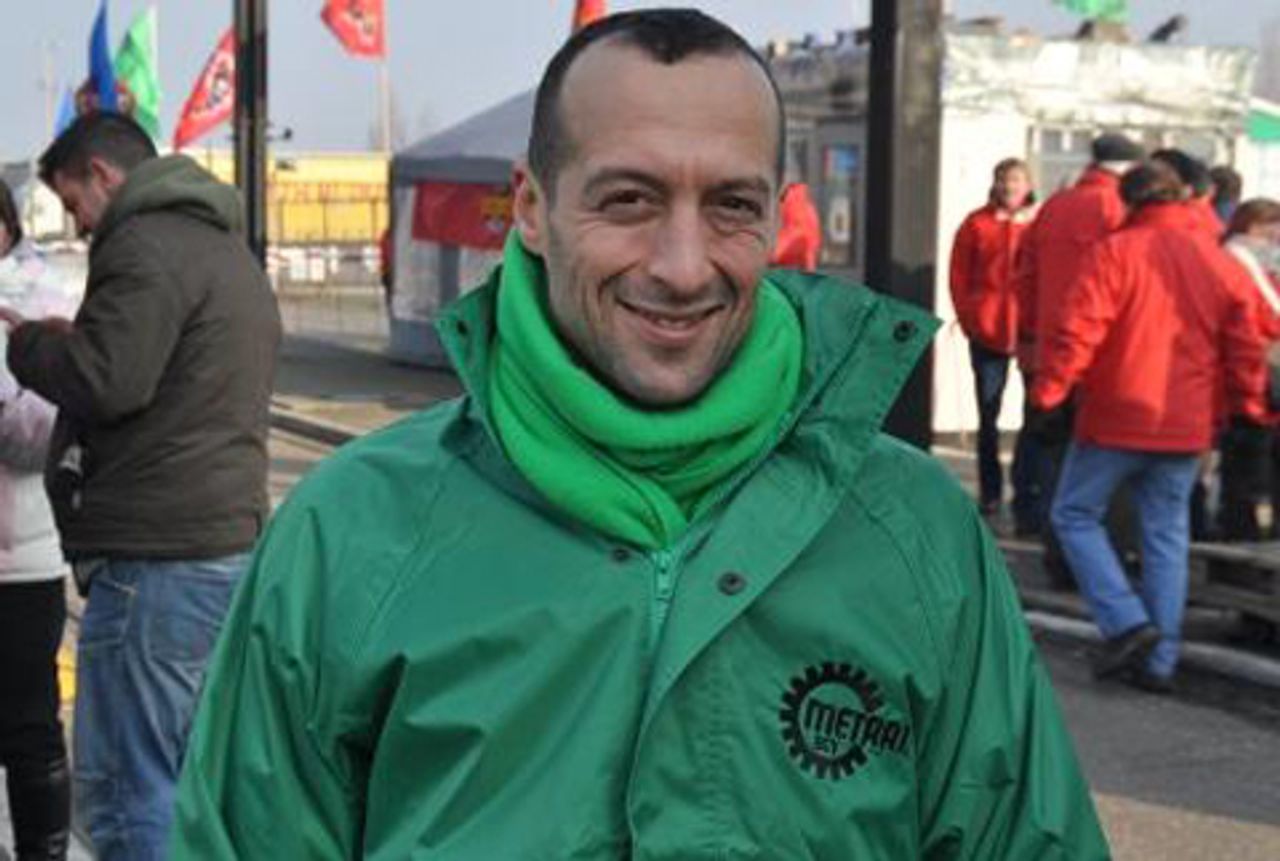 Abdel
AbdelAbdel came here with colleagues from Brussels to support the Opel workers. He has worked for 10 years as a forklift operator for VW-Audi. "In recent years, we have had lots of experiences with plant closures and job cuts,” says Abdel. “First Renault-Vilvoorde was closed, then Ford in Ghent, and masses of jobs were lost at Volkswagen-Forest (Brussels) We really have a right to take to the streets and fight for our jobs.”
